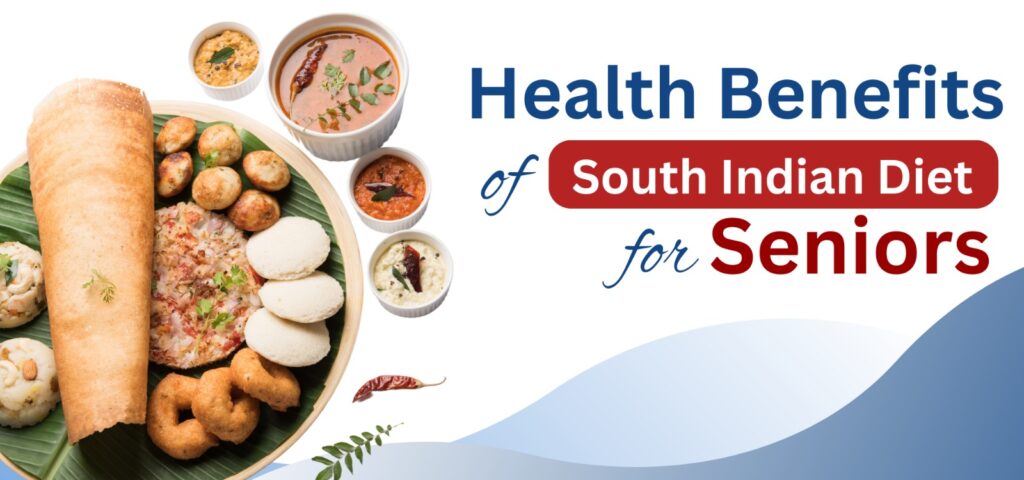As we age, our dietary needs change, making it essential to follow a balanced and nutritious diet. The South Indian diet, known for its rich flavors and wholesome ingredients, is often considered an ideal choice for seniors. But is it the best dietary option for the elderly? Let’s explore its benefits and how it aligns with the nutritional requirements of older adults.
Why Nutrition is Crucial for Seniors
With aging, metabolism slows down, and the body’s ability to absorb essential nutrients diminishes. A well-planned diet in the elderly should focus on:
- Maintaining muscle strength
- Supporting digestive health
- Enhancing immunity
- Managing chronic conditions like diabetes, hypertension, and arthritis
The South Indian diet, with its balance of carbohydrates, proteins, healthy fats, and fiber, can be a great option for seniors.
Key Components of the South Indian Diet
Rice and Millets – Energy and Fiber Boost
Traditional South Indian meals often include rice, but seniors can benefit from switching to fiber-rich alternatives like brown rice, millets (ragi, bajra, jowar), and whole wheat. These provide sustained energy and aid digestion.
Lentils and Legumes – Protein Powerhouse
Protein is essential for muscle maintenance in the elderly. Dal, sambar, rasam, and other lentil-based dishes offer plant-based proteins, keeping bones and muscles strong.
Fermented Foods – Gut Health and Immunity
Fermented foods like idli, dosa, and buttermilk contain probiotics that aid digestion and enhance gut health, which is crucial for seniors experiencing digestive issues.
Coconut – Healthy Fats for Brain Health
Coconut, a staple in South Indian cuisine, provides medium-chain triglycerides (MCTs), which support brain function and memory, helping to prevent cognitive decline in seniors.
Spices – Natural Healing Agents
Turmeric, curry leaves, ginger, and garlic are commonly used in South Indian cooking. These spices have anti-inflammatory properties, supporting heart health and reducing joint pain in seniors.
Seasonal Vegetables – Vitamins and Minerals
A South Indian diet is rich in vegetables like drumsticks, ash gourd, brinjal, and bitter gourd, offering essential vitamins and antioxidants that boost immunity and protect against age-related diseases.
Health Benefits of a South Indian Diet for Seniors
- Eases Digestion: Fermented foods and fiber-rich ingredients promote gut health.
- Regulates Blood Sugar: Millets, pulses, and vegetables help manage diabetes.
- Boosts Heart Health: Coconut, curry leaves, and garlic help reduce cholesterol levels.
- Enhances Bone Strength: Calcium-rich foods like ragi strengthen bones and prevent osteoporosis.
Is the South Indian Diet Enough for Seniors?
While the South Indian diet is highly nutritious, seniors must ensure they get sufficient proteins, vitamins B12 and D, and omega-3 fatty acids. Adding dairy, nuts, seeds, and moderate amounts of fish or eggs can enhance the diet’s nutritional value.
Conclusion
The South Indian diet is a wholesome and flavorful option that aligns well with the dietary needs of seniors. However, customization based on individual health conditions is essential. Consulting a healthcare professional like Dr Prasun Chatterjee can help in crafting a diet plan tailored to elderly nutritional needs.
By making mindful choices, seniors can enjoy a healthy and active life with the benefits of a traditional yet balanced South Indian diet.

